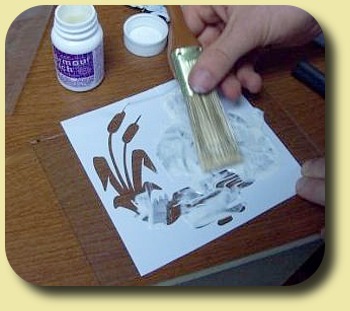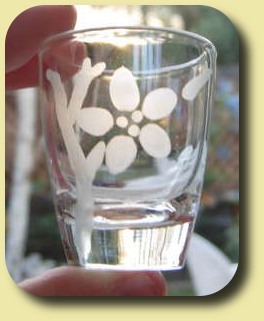
January 2011, Issue 12
Tools
Page 51
I equipped my rotary device with a series of different-shaped fine cut abrasive stones and went about my work the same way you would drawing. Sometimes it was just freehand based on suggestions from the customer, other times it was a photo of a cherished hunting dog that had passed, or my favorite, the fantasy scenes on the large side windows of vans.
 These required that I do drawings based on the clients' ideas of what they were looking for and then approving the sketch. I would then work on a full-sized drawing on large rolls of paper which I could tape on the inside of the glass and use them like a tracing box. Back then even the insurance companies liked it because it made the vehicle unique and easy to identify if stolen.
These required that I do drawings based on the clients' ideas of what they were looking for and then approving the sketch. I would then work on a full-sized drawing on large rolls of paper which I could tape on the inside of the glass and use them like a tracing box. Back then even the insurance companies liked it because it made the vehicle unique and easy to identify if stolen.
 Once I had etched the glass I would need to "punch up" the image so it could easily be seen. White liquid shoe polish rubbed into the etched areas with the excess wiped off when partially dried allowed just enough to remain in the etching to make it stand out.
Once I had etched the glass I would need to "punch up" the image so it could easily be seen. White liquid shoe polish rubbed into the etched areas with the excess wiped off when partially dried allowed just enough to remain in the etching to make it stand out.
Key to this process is finding a liquid polish that is waterproof once dry (and yes this was a trial and error part). This part would, due to the nature of being on a vehicle, need to be retouched from time to time so instructing the owner on how to do it was also part of the job.
Custom Dolls, Houses & Miniatures / CDHM







